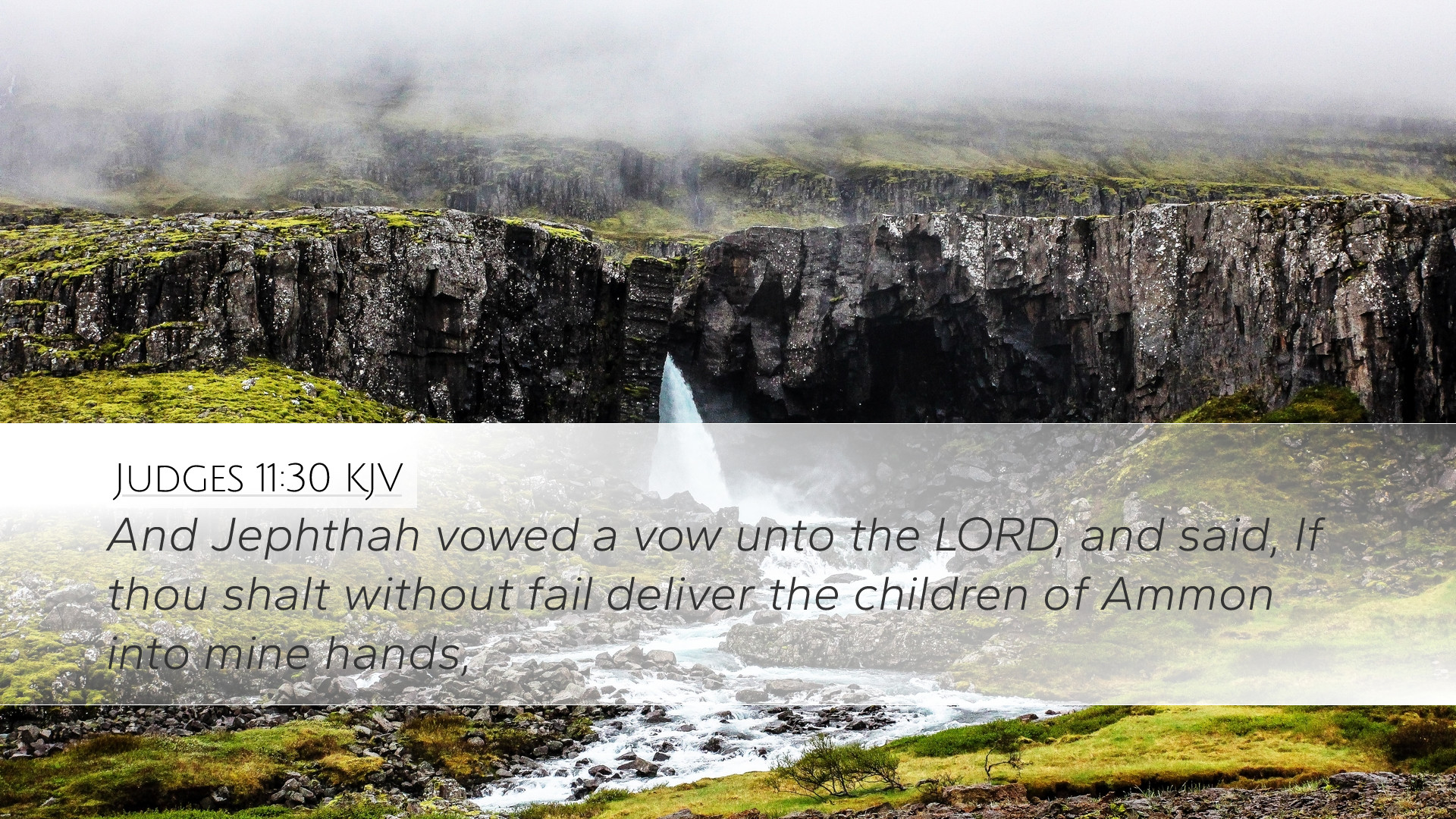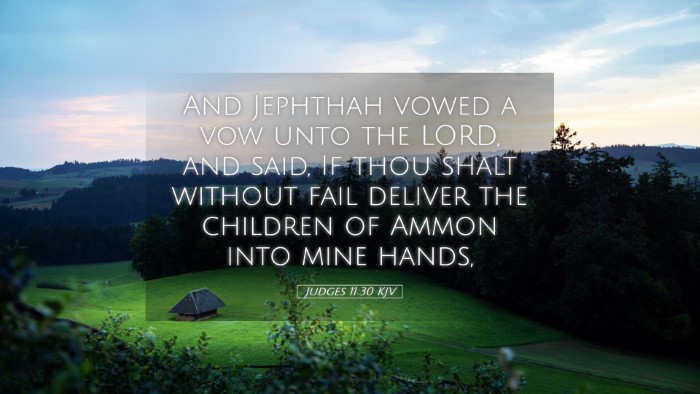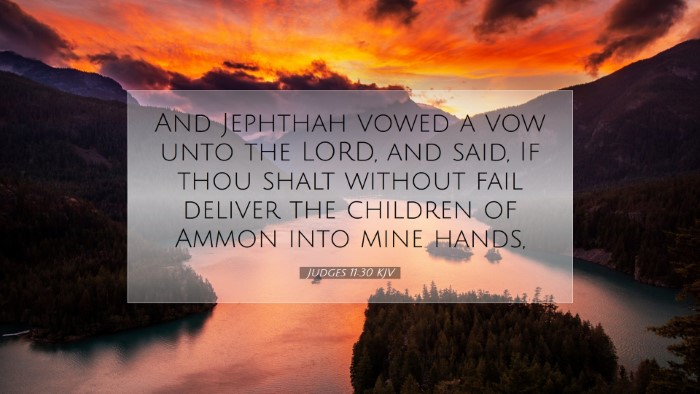Commentary on Judges 11:30
Judges 11:30 states: "And Jephthah vowed a vow unto the LORD, and said, If thou shalt without fail deliver the children of Ammon into mine hands." This verse encapsulates a pivotal moment in the life of Jephthah, a judge of Israel, as he makes a vow to God in anticipation of a great battle. The significance of this vow and its subsequent consequences warrant comprehensive examination.
Background and Context
Before delving into the specifics of Jephthah’s vow, it is essential to understand the historical and cultural context surrounding this event. Jephthah was a Gileadite, a warrior noted for his strength and leadership during a tumultuous period in Israel's history when the Israelites were often oppressed by neighboring nations. The Ammonites, a perennial adversary, posed a significant threat, prompting Jephthah to seek divine assistance.
The Nature of Jephthah's Vow
According to Matthew Henry's commentary, Jephthah's vow reflects a typical practice of the time whereby individuals would promise offerings or deeds in exchange for divine favor in battle. Here, Jephthah expresses his urgent need for help against the Ammonites. His vow can be summarized as:
- Commitment to God: He acknowledges his dependence on God's deliverance.
- Specific Request: He seeks assurance of victory in return for a promised sacrifice.
- Implication of Sacrifice: The promise involves a sacred act upon victory.
Theological Implications
Jephthah's vow raises critical theological questions. Albert Barnes comments on the irrationality of making vows that could lead to drastic consequences. Although his intent was to honor God and remain faithful, the specifics of his vow ("whatever comes out of my house") ultimately bring grave repercussions.
Faith and Folly
Jephthah displays both faith and folly. His trust in God for victory was commendable; however, the execution of his vow brings to light the dangers of hasty promises. Adam Clarke emphasizes the importance of understanding the gravity of our commitments to God. He observes:
- Hasty Decisions: Vows made in moments of distress can lead to regrettable choices.
- Wisdom in Promises: It is crucial to discern the implications of our commitments before making them.
- Covenant with God: Such vows should be rooted in a deep understanding of God's character and the covenant relationship.
Consequences of the Vow
As the narrative unfolds, Jephthah receives the victory he sought, but the outcome of his vow leads to personal tragedy. When he returns home, his daughter emerges to greet him, leading to a heart-wrenching fulfillment of his promise. This raises moral questions regarding Jephthah’s actions and interpretations of sacrifice.
Interpretations of Sacrifice
Matthew Henry notes that the events cannot simply be viewed as an isolated action. Instead, they must be seen in relation to the broader narrative of sacrifices in Scripture. He elaborates on the types of sacrifices demanded by God:
- Animal Sacrifices: Typically expected and commanded under the law.
- Self-Sacrifices: Surrender of oneself for God's glory is often more valued.
- Human Life: Jephthah’s tragic choice raises profound ethical and moral dilemmas.
Lessons for Today
In studying Jephthah's vow, numerous lessons emerge for contemporary Christians, especially for pastors and theologians.
- The Danger of Impulsive Vows: This passage serves as a caution against making promises without fully understanding the implications.
- Deeper Understanding of Sacrifice: It prompts reflections on what sacrifices we offer to God and why.
- The Importance of Seeking God’s Will: Engaging in prayer and seeking counsel before making commitments can prevent falling into the trap of hasty decisions.
Conclusion
Ultimately, Jephthah’s story is one of complexity and depth, offering rich insights into the human condition's frailty when faced with desperation. Through examining his vow, theological reflections surface on faith, folly, the nature of sacrifices, and the profound need for reflection prior to commitment. As we engage with this text, let us approach our vows and commitments with humility, discernment, and a reliance on God's guidance, ensuring we remain aligned with His will.


